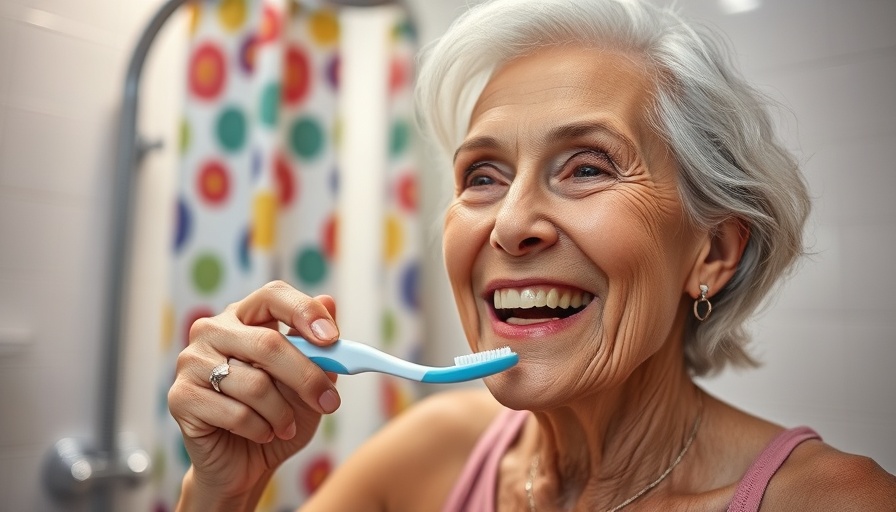
Understanding Tooth Loss: A Common Concern
As we age, maintaining our oral health becomes increasingly vital. Research indicates that nearly one in five adults aged 75 and older have lost all their teeth. While this statistic might seem alarming, it is essential to understand that preventative measures can significantly reduce this risk. With a few changes in routine and lifestyle, aging adults can preserve their natural teeth for much longer.
Six Key Tips to Prevent Tooth Loss for Those Over 50
Dental experts share six essentials to preserving your smile and preventing tooth loss. From regular check-ups to modified diet and home care routines, these straightforward strategies can lead to long-term benefits.
1. Regular Dental Check-Ups
Scheduling regular dental visits is one of the best defenses against tooth loss. Experts recommend seeing your dentist at least twice a year. These visits allow for early detection of problems like cavities or gum disease, both of which can lead to tooth loss if untreated.
2. Maintain a Balanced Diet
A nutritious diet is crucial not only for overall health but also for strong teeth. Calcium and vitamin D play significant roles in dental health. Incorporate dairy products, leafy greens, and seafood into your meals to provide essential nutrients. Additionally, limit sugary snacks which can accelerate tooth decay.
3. Proper Oral Hygiene Practices
Good oral hygiene should be a priority. Brush your teeth at least twice a day and floss daily. This habit helps remove plaque and food particles from between the teeth and under the gum line, reducing the risk of cavities and gum disease.
4. Quit Tobacco for Good
If you smoke or use other tobacco products, consider quitting as soon as possible. Tobacco use adversely affects gum health, enhanced plaque build-up, and can contribute to tooth loss. Resources for cessation are widely available and can provide the necessary support.
5. Stay Hydrated
Staying hydrated is not just about drinking water; it also involves staying aware of your body’s needs as you age. Dry mouth is a common condition among older adults, which can lead to increased cavities. Drink enough water throughout the day and, if necessary, discuss with your dentist about solutions like mouth rinses or saliva substitutes.
6. Consider Dental Sealants
Talk to your dentist about the benefits of dental sealants, a protective barrier that can be applied to teeth to prevent decay, especially in older adults with grooves and pits in their molars where food particles can easily get trapped. This simple procedure can provide an additional level of protection against tooth loss.
Exploring the Emotional and Mental Aspects of Dental Health
As we navigate the challenges posed by aging, the impact of changes to our dental health may extend beyond the physical. Many adults over 50 report feelings of diminished confidence and self-esteem when faced with tooth loss. Prioritizing oral health can therefore play a critical role not only in maintaining a smile but also in fostering a positive self-image. By addressing dental care proactively, individuals can alleviate anxiety surrounding aging and tooth loss, ensuring a healthier outlook as they grow older.
Inspiring Real-Life Stories of Resilience
Incorporating firsthand accounts can inspire and enlighten our understanding of the importance of dental care in later years. Stories from community members who have taken proactive steps to care for their teeth often highlight the transformational power of awareness. One individual, for instance, emphasizes how regular dental visits and lifestyle adjustments led to not only improved dental health but an overall boost in their quality of life.
Final Thoughts: Embrace a Tooth-Saving Mindset
The journey towards maintaining oral health as we age isn’t just about preventative measures; it’s about adopting a mindset that prioritizes well-being. With these tips in mind, you can actively work towards preserving your natural teeth. Dental health is a crucial component of overall health as you navigate through your golden years. Start implementing these suggestions today to encourage a lifetime of smiles!
 Add Row
Add Row  Add
Add 



Write A Comment